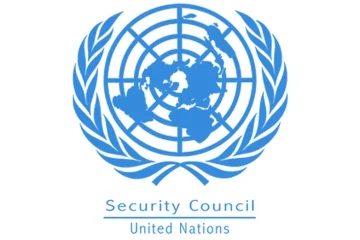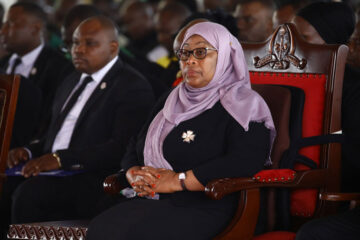HOOLO ‘NYANE
EVER since Lesotho, the mountainous southern African constitutional kingdom of about 2.2 million, attained independence from Britain in 1966, its development has been punctuated by all manner of constitutional breakdowns. These have ranged from coups, dictatorships and military rule.
Among the long list of factors that account for the long-running political instability in the country, the flawed constitution ranks high.
It is now a matter of common course that successive interventions by the Southern African Development Community, in a bid to bring peace to Lesotho, have failed. One of the main reasons is that the solutions often provided are palliative; they ignore the need for fundamental constitutional reform.
The organisation of Lesotho’s state institutions is fundamentally flawed. Almost every institution is an appendage of the executive: oversight institutions, security agencies, parliament, and the judiciary. There is a very weak balance between key state institutions.
Despite the fact that it was adopted only as recently as 1993, Lesotho’s constitution is fairly outmoded. The country had a chance to adopt a new constitution when it emerged from the dictatorship under Prime Minister Leabua Jonathan and rule by a military junta, both of which lasted for about twenty years. Instead, what followed was a mere rehash of the 1966 constitution.
As such, the current constitution is cast in the classical Westminster conceptions that countries in Africa and elsewhere have long jettisoned. The fundamental structure of the constitution is bad and unsuited for modern-day constitutionalism.
Different approaches
While there is some consensus about the need for constitutional changes, there is considerable disagreement in the country about the kind of constitutional changes that are needed, and how extensive they should be.
There are those who say that the changes must be incremental and phased. The justification for this approach is that there are minor and urgent changes that can be effected with relative ease. These can be carried out within a short space of time, and without a need for huge resources. This include, for example, reducing the powers of the Prime Minister in relation to other branches of government.
This justification is largely based on expediency. The proponents of this approach use the recently adopted Ninth Amendment to the constitution as an example of the success of the incremental approach. The amendment, in the main, prevents a Prime Minister who has lost a vote of no confidence in parliament from calling an early election. It leaves him or her with just one option; to resign. The amendment had an immediate application in May 2020 after then Prime Minister Tom Thabane lost the confidence of the National Assembly.
On the other hand, there are those who believe that this success is short-lived; that the country should seize this opportune moment to change the entire constitution. I belong to this group. Lesotho needs a new constitution altogether and as a matter of urgency. A new constitution is needed that will design new institutions that work in a balanced manner and contribute to the transformation of the country from its historic shackles of instability, poverty and abuse of fundamental rights.
What’s wrong
The fundamental principles on which the current constitution is based are outmoded. It is based, among other things, on a very weak model of separation of powers and checks and balances.

The executive is virtually untrammeled. It appoints and dismisses, almost single-handedly, the heads of security agencies, heads of oversight institutions, and the heads of the superior courts. It even appoints all chief accounting officers in the civil service.
This kind of institutional design is typical of classical Westminster constitutions. Most of them are cast on monarchical prerogative. Thus, when political power in Lesotho shifted from the palace to cabinet with the 1993 constitution, all the prerogatives of the monarch shifted to the Prime Minister. The Prime Minister, therefore, virtually exercises all the erstwhile prerogative powers of the King.
When power is so concentrated in the hands of one person, abuse is inevitable. Indeed, the office of the Prime Minister has been the fulcrum of instability in Lesotho. The successive incumbents have used other state institutions to suppress dissent and perpetuate administrative malfeasance. The army, the parliament, and the judiciary have been the major instruments in this onslaught.
Another fundamental problem with the constitution is that the country has a bad Bill of Rights. All the rights in it are fraught with claw-back clauses, to the extent that the “fundamental rights” it supposedly enshrines are reduced to an empty list of promises.
For instance, section 18 provides for the freedom from discrimination. But it then provides for a long list of limitations to the right. It even outrageously includes one that says freedom from discrimination does not apply to members of the “disciplined forces” such as members of the army, police and correctional services. It also says that the right does not apply when the basis for the violation is customary law.
Effectively, women whose rights are often suppressed through the use of customary law in Lesotho, can hardly expect meaningful protection of their rights from the Bill of Rights. Most importantly, it excludes social and economic rights. This is despite the fact that Lesotho is trapped in the least developed countries category.
The importance of having enforceable economic rights is that it changes the constitutional orientation of the country entirely, from a liberal constitution to a post-liberal one. A post-liberal constitution – such as neighboring South Africa’s – embodies the positive obligations of the state to remedy historical realities. It’s imperative for Lesotho to move in this direction.
Time for boldness
There is no amount of gradual change that can remedy these fundamental deficiencies. It’s time for an overhaul of the entire constitution. Its deficiencies are both structural and fundamental.
Lesotho would do well to follow the example set by the likes of South Africa and Kenya, whose constitutional projects became a success. Instead of just tinkering, they bravely adopted completely new constitutions that marked a clear break with the past.

This is the path that Lesotho needs to take. The incremental approach only adds to the already existing confusion about relations between state institutions in the country. That will only amount to an unsustainable patchwork.














